News
Valentina Álvarez: “The Manabí woman is guardian and sovereign of the food chain”
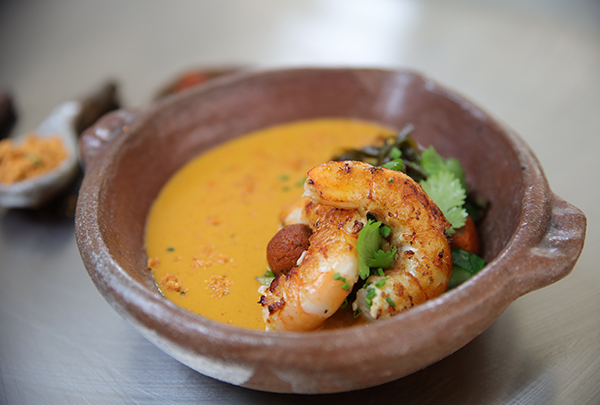
Ancestral Manabí cooking and the crucial role played in it by the Manabí oven as the hub transmitting culture and identity rounded off the third FéminAs congress.
Cultural riches, connections to ancestors and the transmission of gastronomic knowledge were the issues addressed by Ecuador chef Valentina Álvarez, who runs the Iche school-restaurant (San Vicente). She did this with the Manabí oven, which in her culture is not just a means of cooking, but also the hub transmitting Manabí's identity and gastronomic culture".
Valentina described the Manabí oven as a wooden structure ("the type of wood was dictated by the family's economic possibilities") filled with clay, with sunken ceramic bowls and a burner, crowned by a canopy "to apply food-smoking techniques". Valentina told congress-goers that the Manabí oven has "16 techniques for cooking and preserving food: there's a section for roasting and frying ... but you can also smoke food - cold, lukewarm or hot - and we can also cook food buried in the embers, over the embers in what we call ‘en arrimado’ (on one side)”. The pot also acts as an oven "because it builds up so much energy throughout the day that it can roast-cook". Even the ashes have a role to play because "they aren't thrown away - they're mixed in with water to make a clay which is put over the embers to steam-cook buns, tamales, pork etc."
The Manabí oven has a special space in each home, and "the star of the show in this space is the woman. She is the one who brings in the knowledge, she tames the heat, and establishes a symbiotic relationship with her oven. Each woman has HER oven and she knows it, understands how it works, and then she passes on this knowledge", explained Valentina. The woman also uses the oven to manage the resources at home and around the farmstead. “She has the knowledge and she plans” - said Álvarez - “because she is guardian and sovereign of the food chain", a role that can be more easily understood if we consider that women used to keep seeds for the following year's harvest next to the oven.
The theory was put into practice when Valentina gave all the congress-goers a live demonstration of how the Manabí oven worked while she made up a "viche", a pre-Hispanic soup with vegetables from Manabí plantations. An oven which the chef offered to the "guisanderas" of Asturias, as part of the Manabí heritage, telling her colleagues that "we have many common ties, each with their own peculiarities, and that is what enriches us".


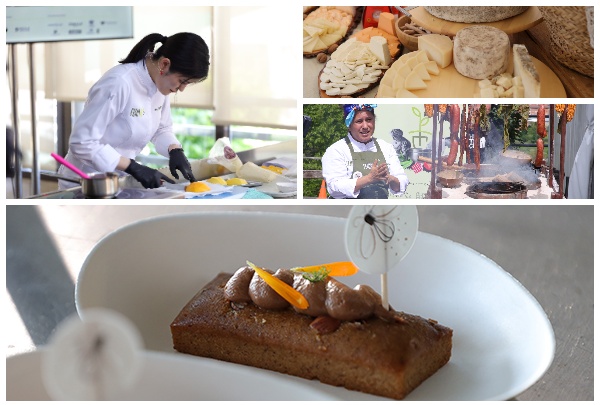
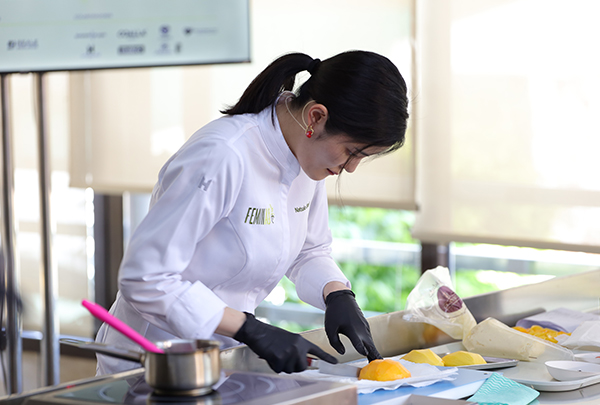
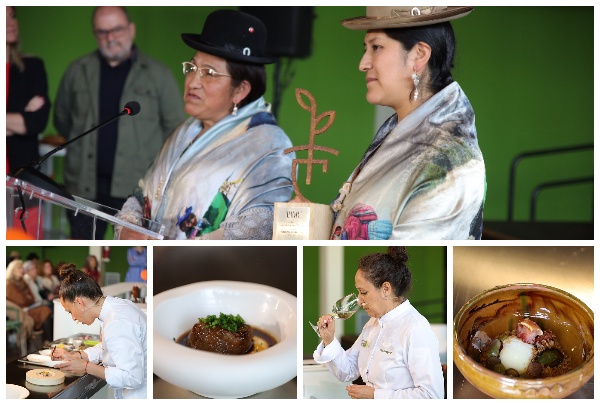
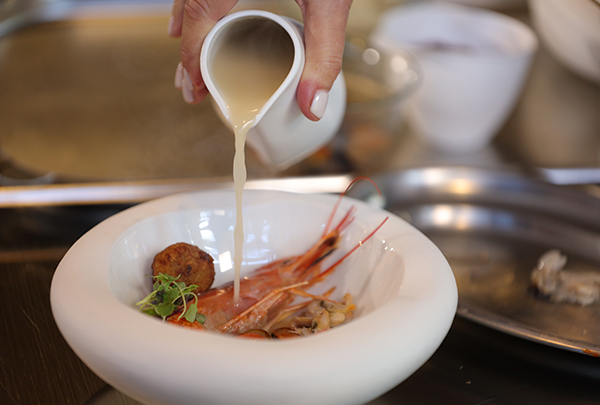
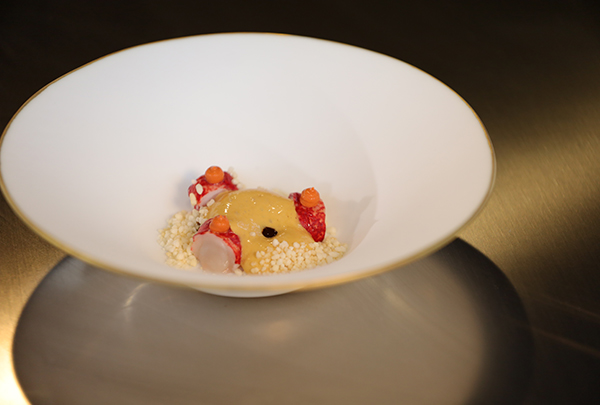
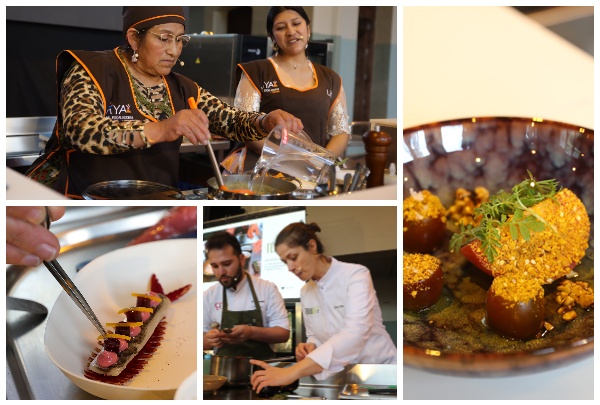
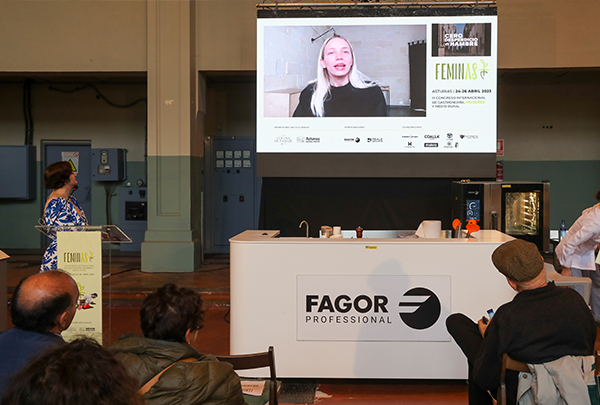
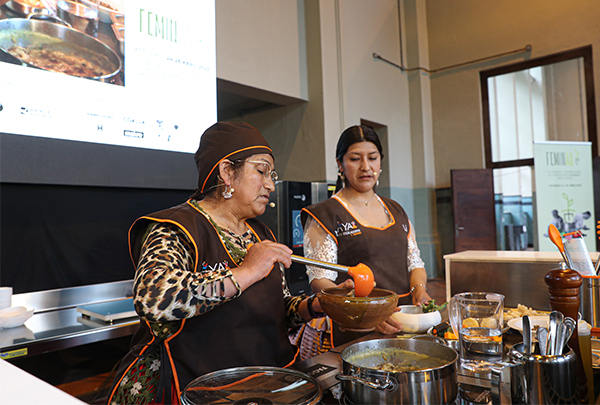
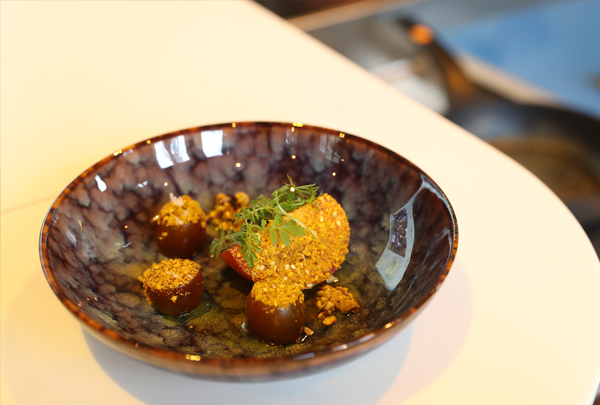
.jpg)










